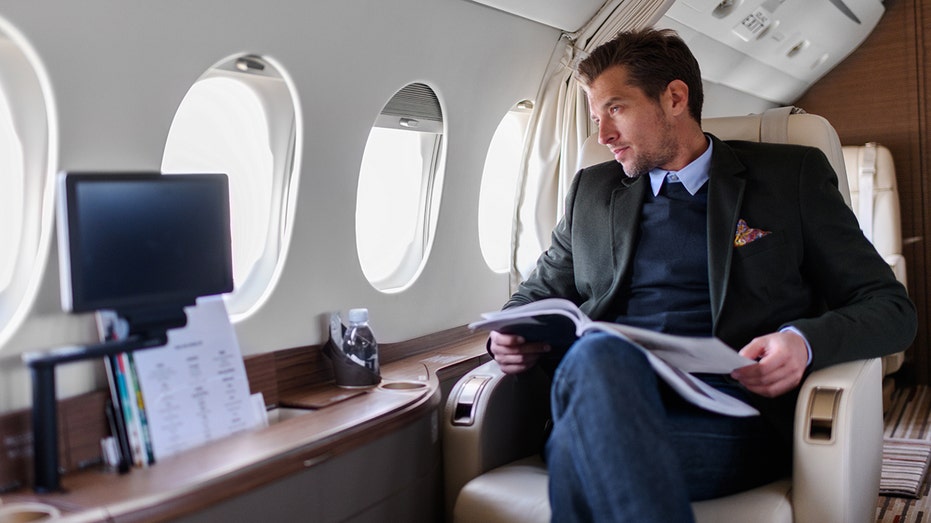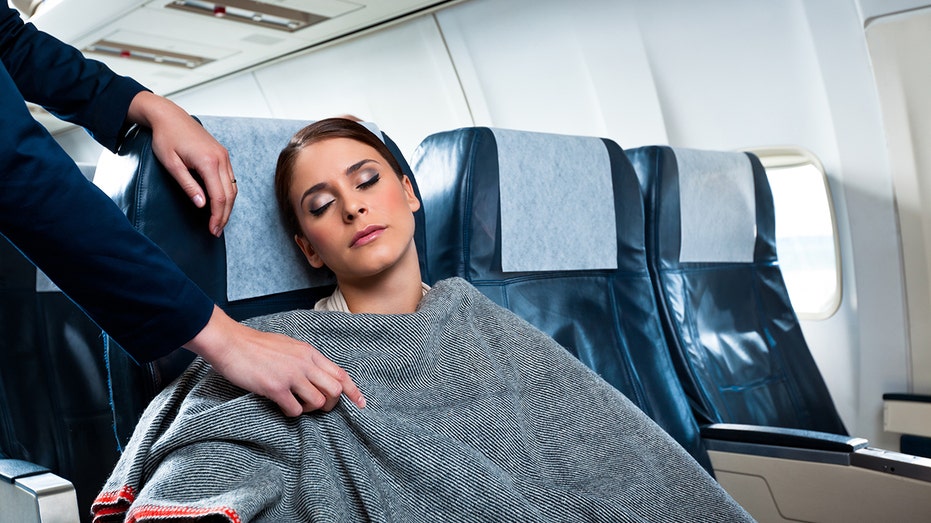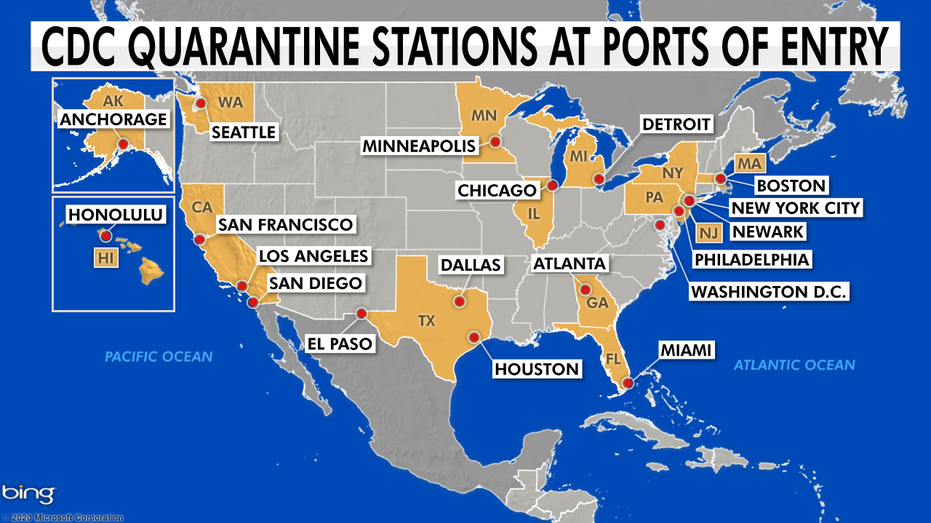The best seat to avoid coronavirus exposure on an airplane
Researchers have determined which airplane seat is best for avoiding infectious illnesses
If you’re planning to book a flight amid the coronavirus outbreak, you may want to reserve a window seat, according to researchers at Emory University.
The “FlyHealthy Research Team” observed passenger behaviors and movement on 10 transcontinental U.S. flights with durations ranging between 3 1/2 and 5 hours, and it turns out that passengers in window seats had less contact with potentially infected people.
AMERICANS FLEEING WUHAN CORONAVIRUS LAND IN CALIFORNIA

Respiratory illnesses like the coronavirus tend to spread when a person comes into contact with the saliva or mucus of an infected person. And it doesn’t necessarily have to result from kissing a significant other. Droplets from a cough or sneeze are enough to transmit a virus via shared surfaces, including the tray tables and armrests found on commercial flights.
Passengers sitting near a window, though, moved less and had fewer interactions with other passengers, which limits their chance of infection, according to the study’s leading researchers Vicki Stover Hertzberg and Howard Weiss.
CORONAVIRUS SCREENING EXPANDS TO 15 MORE US AIRPORTS
The middle and aisle seat, on the other hand, were more likely to get up and come into contact with passengers infected or not when they walk through the cabin to use the bathroom, which is a bacteria hub.
“Suppose you’re seated in an aisle seat or a middle seat and I walk by to go to the lavatory,” Weiss told National Geographic about the study’s findings. “We’re going to be in close contact, meaning we’ll be within a meter. So if I’m infected, I could transmit to you.”
CORONAVIRUS SPARKS STARBUCKS, MCDONALD'S CLOSURES IN CHINA
Eighty percent of passengers in aisle seats moved throughout the cabin compared to 43 percent of window passengers. Moreover, middle and aisle seats put passengers in closer contact with airline crew, clocking in at 58 and 64 respective close encounters on average compared to a window seat passenger’s 12.
“Thus, it is imperative that flight attendants not fly when they are ill,” Weiss added.

Although the study’s findings are substantial, it is limited because researchers did not observe behaviors and movement on flights longer than six hours or larger aircraft that have more than one aisle. It also does not account for transmission via aerosols. However, the researchers said they hope to look into this.
GET FOX BUSINESS ON THE GO BY CLICKING HERE
For potential passengers that are unable to reserve a window seat, the study noted that there is a low risk of transmission on an airplane.
“If you’re seated in an aisle seat, certainly there will be quite a few people moving past you, but they’ll be moving quickly,” Weiss reassured. “In aggregate, what we show is there’s quite a low probability of transmission to any particular passenger.”
To minimize your chance of contracting the coronavirus, the Centers for Disease Control and Prevention recommends washing your hands often with antibacterial soap and water for at least 20 seconds or using a hand sanitizer that contains at least 60 percent alcohol. You should also avoid touching mucous membranes near your eyes, nose and mouth.

CLICK HERE TO READ MORE ON FOX BUSINESS
Several airlines have suspended flights to mainland China amid the outbreak, which has claimed the lives of over 130 people and sickened nearly 6,000 others. Quarantine stations have been set up in 20 American airports at the time of publication.




















